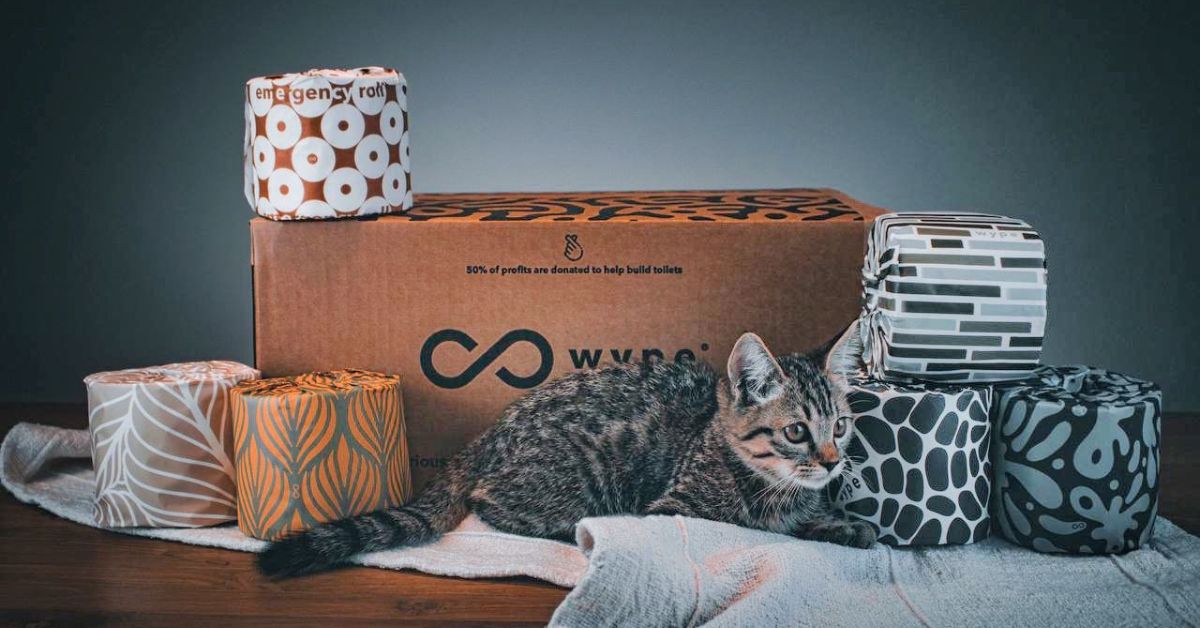If you remember the panicked shopping frenzy during the start of the pandemic, you’ll know just how important toilet paper is in our daily lives.
Yet, the fact of the matter is that in many parts of the world, proper sanitation is not a given, much less toilet paper.
Established in 2020, Wype is a local startup that believes it can make a difference through toilet paper rolls.
Inspired to do good
Behind Wype are Bryan Koh and Roy Wong.
The two co-founders met during their service in the Navy while fulfilling their national duty, bonding over their shared passion for efficiency and problem-solving.
“From the get-go, Bryan and I knew that we would be building brands together,” Roy said. “But more than just brands—brands and products that make a real difference to people’s lives.”
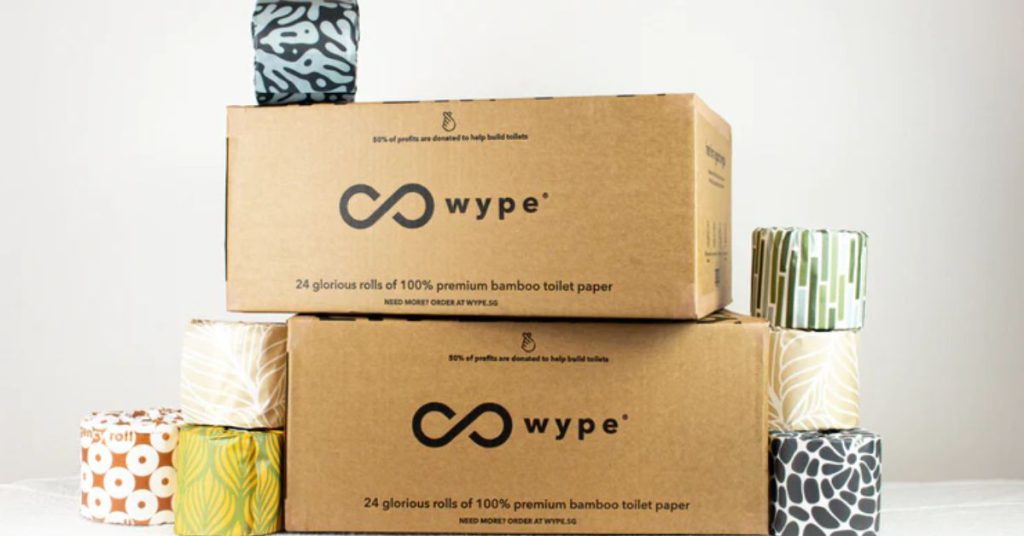
The two came up with a plan to deliver impact first. They decided to dedicate whatever business they concocted to the cause of proper sanitation for the underprivileged, which is something they strongly believe is a basic human right.
“Unfortunately, millions around the world lack this fundamental necessity, which affects their health, dignity, and overall quality of life,” they said.
So, the two came up with a simple but effective solution—donating 50% of their profits towards building toilets for those in need.
Their decision to sell toilet paper came after, for the simple reasoning that it is a common product that everyone uses. Plus, with Wype being born in the era of the pandemic, a subscription model made sense as well.
Thus, Wype was born, delivering toilet rolls through a subscription model and a motto of “do good while you poop”.
Offering a premium product
Aside from its positive impact, Wype also prides itself on having a premium product. Not just the standard toilet roll, Wype toilet rolls are made from bamboo from the remote regions of Sichuan Province, China.
“Local farmers in these areas strategically plant bamboo on the edges of their family farms, not only as a sustainable agricultural resource but also to enhance their income and support their communities,” the co-founders elaborated.

The processing of the bamboo is also mainly rooted in these regions, the duo said, as each village typically has its own bamboo cooperative and pulp factory.
With that in mind, Wype helps support these farmers and their families too. Plus, the localised nature of the processing also contributes to a more sustainable supply chain.
Aside from the material, something you’ll instantly notice about Wype’s rolls is their patterned packaging.
“We believe that the presentation of a product plays a significant role in shaping consumer perceptions and enhancing brand appeal,” they said.
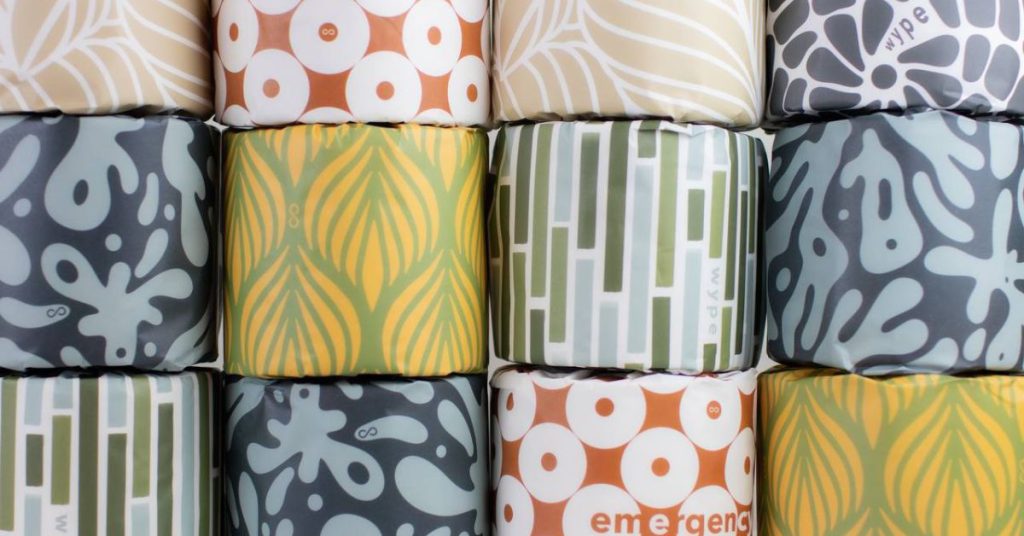
Furthermore, it helps with brand recognition and perception.
Aligning with the business’s values, the material of the packaging is eco-friendly and biodegradable. Functionality-wise, Wype has also incorporated practical features such as easy tear-off strips and resealable closures.
Wype’s products are available online as well as at select retail outlets, particularly eco-conscious ones such as The Social Space, Everyday Vegan Grocer, and The Green Collective.
Finding the right market
The target demographic for Wype comprises environmentally conscious consumers who prioritise sustainability, quality, and convenience in their purchasing decisions.
These typically tend to be people with a fair amount of disposable income, especially considering that Wype’s pricing is on the higher end compared to other toilet paper rolls in the market.
Justifying this, the co-founders reminded that their toilet paper is crafted from premium-quality, sustainably sourced materials that aim to minimise ecological footprint throughout the production process, which may entail higher manufacturing costs.
Additionally, the team’s commitment to social responsibility, which includes fair wages for workers, is also reflected in the pricing. Don’t forget the value added from the packaging and the team’s charitable pledge.
The toilet paper rolls sell for S$40 for a box of 24 rolls, making one roll worth S$1.67. Meanwhile, FairPrice sells a 20-pack of three-ply Kleenex rolls S$15.06 (S$0.75 each).
Those who choose to subscribe to Wype will get a 10% discount though, bringing the price to S$36 (S$1.50 each). Subscribers can opt for Wype to ship the boxes every two, four, six, eight, 10, or 12 weeks.
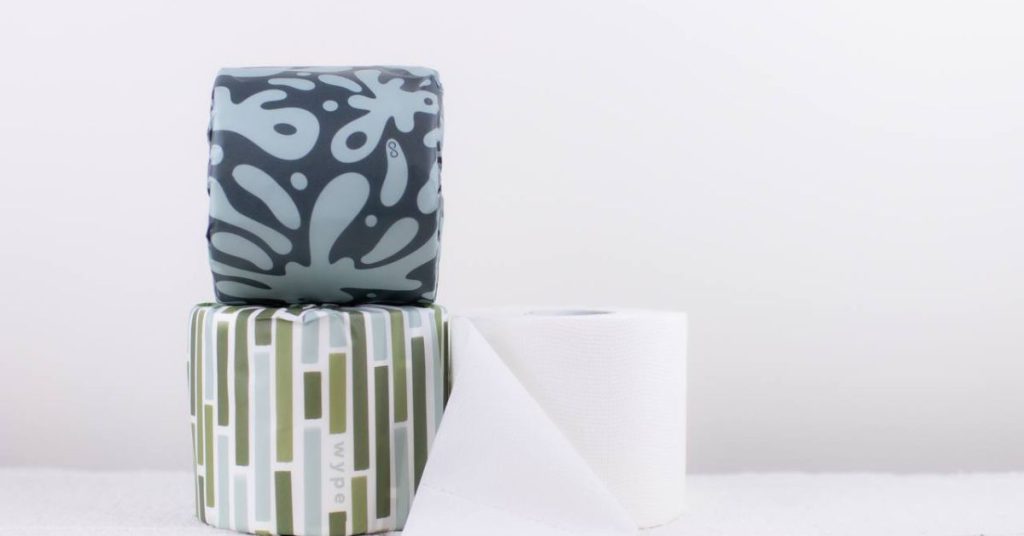
“While our toilet paper may be priced higher than some alternatives, we believe it offers unparalleled quality, sustainability, and social impact, positioning Wype as a premium product that customers can trust and rely on,” they stated.
And there seems to be an audience that resonates with this, as Wype has a total of 5,200 subscribers currently.
Aside from individuals, who make up the majority of the subscribers, Wype supplies to businesses such as hotels, cafes, and restaurants.
“These corporate clients are attracted to Wype not only for the quality and sustainability of our products but also because they align with their values of making a positive social contribution,” the co-founders pointed out.
Profiting for impact
To date, Wype’s donations have facilitated the construction of numerous toilets in underserved areas, the team claimed.
Those who may be concerned about whether the business is greenwashing may feel more at ease knowing that Wype is certified by B Corporation, which is known for its rigorous vetting process.
The team also works closely with reputable institutions such as the World Toilet Organization and
Water.org to ensure their initiatives are relevant and effectively implemented.
Although Wype is driven by bringing impact, it recognises the importance of profitability, as that is required for it to sustainably continue making a positive impact.
“While profitability is indeed a goal, it is not the sole focus of our business,” they clarified. “We prioritise balancing financial success with our social and environmental objectives, ensuring that we remain true to our core values and fulfil our commitment to giving back to communities in need.”
With that in mind, the co-founders shared that Wype’s profit margins are mindfully managed to support both their business operations as well as the donations towards building toilets for those in need.
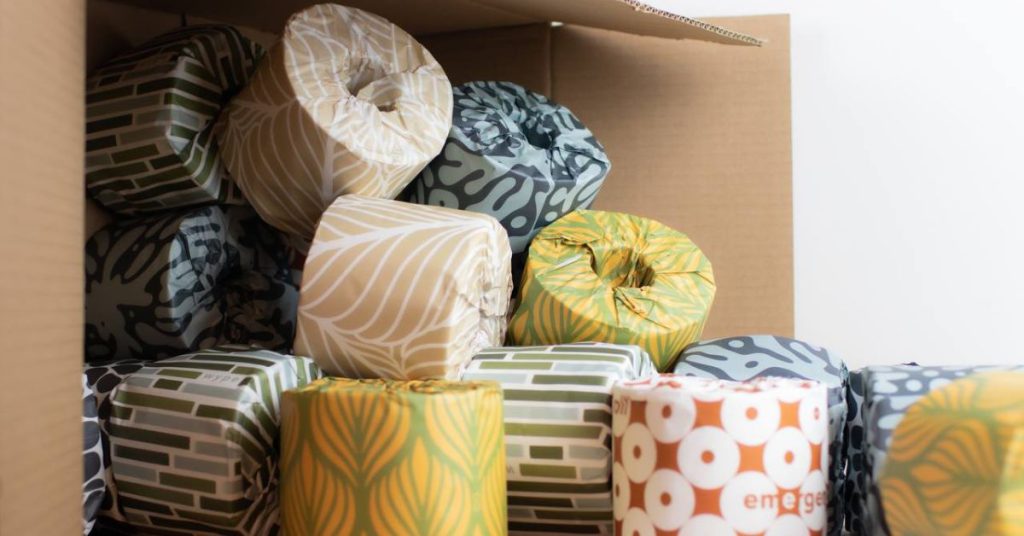
The team also stays agile and adaptable to navigate changing market dynamics and emerging trends in the sustainability space.
Going forward, Wype aims to expand its product line beyond toilet paper to include a broader range of sustainable paper products.
This may include items such as paper towels, tissues, and napkins, all crafted with a commitment to quality, sustainability, and social responsibility.
For the long term, the plan is for Wype to amplify its impact on sanitation issues globally, spreading awareness and advocating for positive change on a larger scale.
“We aim to become a leading voice in the conversation surrounding sanitation and toilet problems, leveraging our platform to educate and empower individuals, businesses, and governments to take action,” they concluded.
- Learn more about Wype here.
- Read other articles we’ve written about startups here.
Featured Image Credit: Wype

